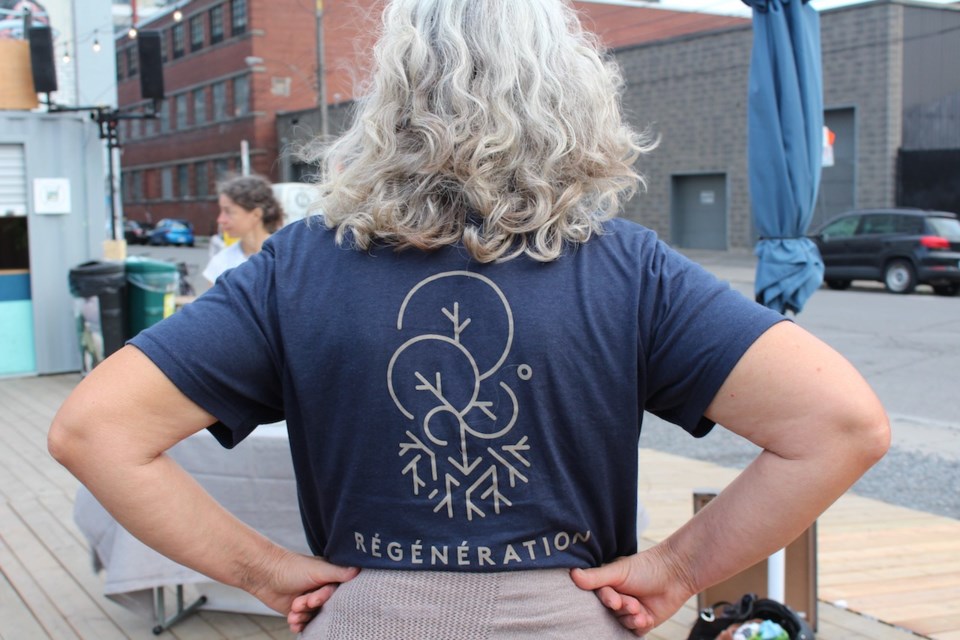If you missed my ask of you a few weeks ago, here’s a quick summary: fall in love with soil. Healthy soil is a wildly diverse habitat, filled with tiny creatures co-operating and trading and evolving together to make plants grow. Soil is the key to the health of surrounding ecosystems, and to human health, and it is also one of the best tools we’ve got to mitigate the global climate crisis.
You can take your first step to becoming an advocate for healthy soil by joining Bowen in Transition and Bowen Island Food Sovereignty in welcoming Ananda Fitzsimmons to the Library Annex on July 27 at 4:30 p.m. Fitzsimmons is the president of the board of directors for Regeneration Canada, a Montreal-based organization dedicated to raising the profile of soil biology among farmers, policy makers, everyday people.
Fitzsimmons’s interest in soil grew out of her passion for organic gardening and backyard composting. She started learning about permaculture, and then, in the early 2000s, learning about fermenting and plant microbiology.
In 2017, her work producing agricultural products from beneficial yeasts and bacterium for farmers brought Fitzsimmons to Regeneration Canada’s first Living Soil Symposium in Montreal.
“At the time, I was feeling very desperate about the fact that governments and the powers that be were not appearing to do anything effective to actually take charge of the climate crisis,” Fitzsimmons says. “I had heard that sequestering carbon in soil could be a part of that, and there were a lot of people at the symposium talking about it. That was very exciting to me because it made me feel like there was something I could actually do.”
Currently the Earth’s soils hold more than three times more carbon than what exists in the atmosphere and in the bodies of all living things, but soils have lost between 50 and 70 per cent of the carbon they once held. As soil loses carbon––to tilling, to mono-culture planting, to the use of chemical fertilizers and to melting permafrost––it becomes part of the problem.
Regenerative agricultural practices aim to rehabilitate soil and ecosystem health, allowing for the re-establishment of a diverse population of soil-dwelling microbial and fungal life forms that team up with plants to store carbon in the soil. A 2017 study published in Scientific Reports estimated that croplands have the potential to store as much carbon as the global transportation sector emits annually.
Farmers working on vast tracts of land have the opportunity to make the biggest impact when it comes to carbon sequestration, but Fitzsimmons believes that making this happen is up to all of us.
“The food system is something we’re all connected to, because we all need to eat,” says Fitzsimmons. “And at Regeneration Canada, we’ve been looking into what makes the whole system turn and we know that farmers make their choices based on what the market demands. So if we as citizens, as consumers, want them to change, we have to advocate for that with our votes, with our dollars and with our voices. I think it is so important that all citizens recognize that there’s an entire ecosystem that involves all of us, and that we all have some influence over.”
To hear more about the regenerative practices that have the potential to sequester carbon and create a safe and secure food system, be sure not to miss Ananda Fitzsimmon’s talk. The presentation will be followed by a discussion about how a community like our could take action. Please RSVP to [email protected].



